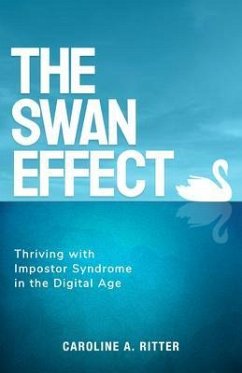Have you ever gotten a new job or started a new project at work and suddenly questioned whether you are even "qualified" for the role? Impostor Syndrome is experienced by 70 percent of people at some point in their lives.
Most guidance on the topic recommends that people work to "overcome" their Impostor Syndrome. Yet in an increasingly digital and ever-changing world, the characteristics of Impostor Syndrome have become invaluable assets. It is no longer a syndrome, but an advantage for individuals working in the Digital Age. People with Impostor Syndrome are successful. Even if they can't internalize their achievements, they have personal characteristics inherent to Impostor Syndrome that actually enable their success.
In The Swan Effect, strategy consultant Caroline Ritter explains what these characteristics are, how to leverage them in the Digital Age, and why feeling like an "impostor" is the start to your own success story.
Most guidance on the topic recommends that people work to "overcome" their Impostor Syndrome. Yet in an increasingly digital and ever-changing world, the characteristics of Impostor Syndrome have become invaluable assets. It is no longer a syndrome, but an advantage for individuals working in the Digital Age. People with Impostor Syndrome are successful. Even if they can't internalize their achievements, they have personal characteristics inherent to Impostor Syndrome that actually enable their success.
In The Swan Effect, strategy consultant Caroline Ritter explains what these characteristics are, how to leverage them in the Digital Age, and why feeling like an "impostor" is the start to your own success story.
Dieser Download kann aus rechtlichen Gründen nur mit Rechnungsadresse in A, D ausgeliefert werden.









